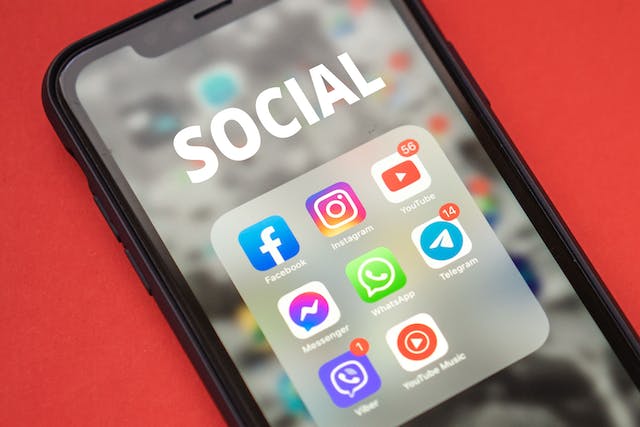Social Media has pioneered a new revolution around us. However, as much as for the blessing, it has been a curse too. The constant feeling of being left out is taking a toll on your mental Health. Hence, in this blog, you will learn 12 actionable strategies to help deal with your fear of missing out due to social media.
How often do you scroll on social media, viewing other people’s posts and stories, and before you know you’re in this bottomless pit of comparison? You start feeling sad about your life as if it’s not enough.
While social media offers an excellent opportunity to stay connected with your friends and family, it can also impact your mood sometimes. Whenever you open your Instagram or Snapchat, the countless updates can drive you to feel less about yourself.
It creates an unsettling feeling, leaving you curious to know more. All this distracts your mind, making a profound impact.
No matter how hard you try, it’s challenging to get over those visuals. The continuous thoughts of living ‘that’ life can quickly leave you with an unspoken anxiety or fear of missing out (FOMO).
If you are caught up in a similar circle of FOMO, I have listed 12 actionable strategies that can help you get over it.
12 Strategies to Tackle Fear of Missing Out Caused by Social Media
While there are so many practices like meditation and mindfulness that can help you get over your fear of missing out, they may not always work. Thus, here are 12 new strategies that will help you through the process as you become more mindful of your social media use.
1. Set your Social Media Goals
Whether it’s life, business, fitness, or social media, goals keep you on track of the process and progress. This is why they are important. They help you build clarity and stay focused on the right path, avoiding distractions.
So, make sure you decide your purpose of using social media. Whether you’re using it for networking, staying connected with your family and friends, learning something new, or entertaining yourself.
This will help you to declutter your social timeline and only follow or interact with people who add value to life instead of fueling your fear of missing out on unnecessary things.
2. Allocate a Specific Time for Using Social Media
As per an interesting stat, the average use time that people spend on social media has increased to 151 minutes per day. It’s a 4-minute increase from the previous year.
Social media addiction is getting out of hand every passing day. You may open your Instagram for 5 minutes, come across a reel, and before you realize you’ve already wasted an hour or more. further. During this mindless scrolling, you can find content that makes you feel left out.
To avoid this, you can always set a specific time for using social media. Also, be more intentional with your social media use to save time and prevent yourself from browsing unnecessarily.
This simple practice will also make you more mindful of the content that aligns with your interests and goals.
3. Restrict Social Media Notifications
Social media notifications are meant to bring you back to the application so that you spend more time on it adding to the billion-dollar profits of these companies. Every social media platform sends you notifications for several reasons. Whether your friends post something, someone likes or comments on your content, or something is trending, there is a ‘Ping’ for everything.

Naturally, when you open your phone to check this ‘Ping,’ it takes you back to the vicious cycle of endless scrolling. This is why, turning off your non-essential notifications is a smart move.
I have stopped all the notifications from every app on my phone except WhatsApp and Bank alerts. I cannot begin to explain how time-saving it has been.
It helps you avoid the constant alerts that create a sense of urgency, intensifying your fear of missing out. Also, restricting these notifications can help you regain control of your attention and prevent anxiety.
4. Curate Your Feed Carefully
Unlike other media channels, social media lets you control what you engage in. You have the power to control what you see in your feed. You can decide the content or accounts you wish to follow. Plus, the algorithm further customizes your feed based on the content you engage with.
Hence, be mindful of what posts you engage with. Make sure you follow people who inspire and educate you. Unfollow the accounts that trigger your negative self-talk or feelings of inadequacy.
You must use this freedom smartly and earn a curated feed to improve positivity and minimize these FOMO triggers.
5. Practice Social Media Detox
Detox may sound like a buzzword in the present times. Given the increasing number of influences from junk food to social media, it may feel too much to listen to it constantly. However, it is an important part of building a healthy and preventative lifestyle.
Just as you go for a body detox to improve your health, you can go for your social media detox. For this, you can plan regular breaks from using social media.
Set a few hours or even a day or more, like the weekend, the choice is yours. The key is to disconnect from all your social media apps and the internet, focus on other things, be present at the moment, in the real world, and relax with a break.
It can be a great way to reconnect with the present moment in your life rather than focusing on other people’s past or present. A digital detox can have a huge impact on reducing your fear of missing out.
6. Let go of Fear of Missing Out, Embrace its Joy
In a battle against FOMO, let’s put JOMO!! Didn’t understand? The joy of Missing Out, or JOMO, is when you start enjoying missing out on the distractions, drama, and unnecessary things that complement the glittering parties or trips.
Whatever you see on social media is the side of life that people choose to share with others. As a viewer, you only see what the user chooses to show you. People are expected only to select pictures or videos that exude happiness and fun. But things are not always as they seem.
The pictures and stories you see may have a dramatic side to it. There would have been problems, struggles, or conflicts that people usually choose not to show to the world. Either way, it’s fine. You should just focus on your life and embrace the joy of missing out on other people’s lives.
7. Write down Your Blessings
We all have desires, wishes, and goals in life. It’s good to be ambitious, have a purpose, and chase your passion. But this should not cause you to ignore the blessings you already have.
You can easily complain and feel left out in your online life. However, in the real world, always count your blessings, and always be grateful. Take the higher path and write a gratitude journal for what you’re thankful for in your life.
With this practice, you get to focus on your real-life blessings and remind yourself of what truly matters. This will also reduce your feelings and fear of missing out on those virtual experiences.
8. Take up Offline Hobbies
You may or may not realize this but as you grow up, your childhood hobbies or recreational activities have been replaced with your screen time. It’s high time to change this habit.
For that, you can again start investing your time in hobbies that don’t involve screens. Whether it’s dancing, painting, traveling, reading, writing, or anything that gives you a sense of genuine joy and fulfillment.
When you take up these practices in real life, the joyful experience helps you reduce the longing or anxiety caused by your fear of missing out.
9. Choose Face To Face Communication
Social Media has revolutionized communication. It’s easy to talk, chat, see, or connect with anyone instantly through social media. You don’t have to worry about geographical boundaries anymore; that is a plus.
However, it has often forced you to refrain from face-to-face communication. You may usually prefer to text or call people instead of talking face-to-face because that’s an easy way.
This act can subconsciously trigger your fear of missing out. Hence, you must replace that with face-to-face communication which will help you to build meaningful relationships in reality and not on social media alone.
Take the initiative to purposely arrange meetups, coffee dates, or outings with your friends and family. Such events will help you to improve genuine human connections and provide a sense of belonging, easing loneliness.
10. Set Boundaries for Your Social Media
The best way to avoid the negative impact of anything is to set boundaries for it. A disciplined and mindful use will always help you prevent any harm.
Similarly, you can set specific rules for social media usage. For instance, you decide you won’t use phones during meals or before bedtime.
You can also set a specific family time or weekend where you won’t use phones. When you set these boundaries, it creates a healthy balance between your online presence and offline life.
11. Prioritise Your Personal Growth
When you prioritize your personal growth and development in life, you avoid unwanted confusion, internal conflicts, and regret. You are so focused on working hard towards your goals that there is no time and place for unnecessary drama.
This adds to your overall well-being and keeps you focused instead of worrying about what’s going on on Social Media. Prioritizing your personal growth also helps you to focus your energy on other important things like learning new skills, pursuing hobbies, or improving fitness routines.
When you shift your mental focus to self-improvement, it helps to improve your self-confidence. Then, you can take away your attention from FOMO-driven insecurities.
12. Have a Support System
Whether you have FOMO, anxiety, or any other uneasy feeling with the use of social media, it’s important to vent it out by sharing it with someone.
We always keep it to ourselves because we think no one may understand, or we may become a topic of laughter.
But it’s not true. Your close friends, family, or support group genuinely care for you and will always try their best to help you find a solution.
Also, just sharing your concerns aloud can help you relieve stress. Supportive friends can offer perspectives and advice that help you overcome your problem.
Conclusion
Self-criticism is good, but in a world filled with so many powerful influences, it’s important to be kind to yourself. You must consciously avoid self-criticism if you miss an event or social media trend. Understand that it’s normal to miss out occasionally, and it doesn’t reduce your worth.
Social Media is a tool for communication and connectivity; it’s not a measure of who you are and what you do, so don’t make it one.
I hope you will use the tips mentioned above to purposefully use social media to ensure that it improves your life rather than dictating your emotions.



